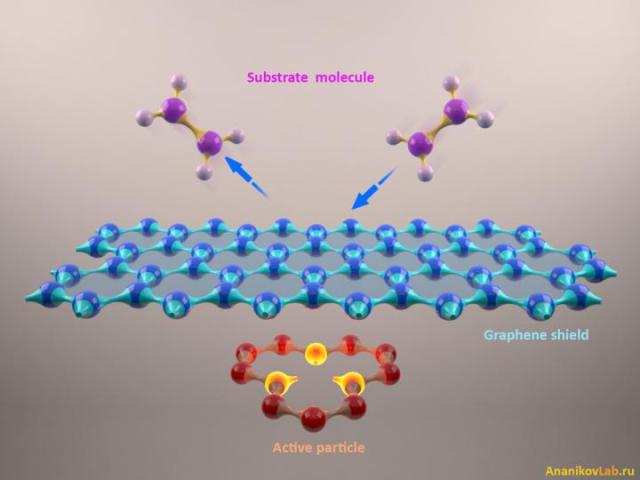Feb 9 2016
A collaborative research proposed that graphene sheets are capable of effectively shielding chemical interactions. This occurrence holds promise for applications such as the quality improvement of 2D materials by "de-charging" charged defect centers located on the surface of carbon materials. The ability to control the selectivity and activity of the supported metallic catalysts on the carbon substrate is another key feature.
 This image shows a graphene layer as an effective chemical shield, which regulates the level of molecular interactions. Photo CREDIT - AnanikovLab
This image shows a graphene layer as an effective chemical shield, which regulates the level of molecular interactions. Photo CREDIT - AnanikovLab
The team analyzed carbon materials with surface defects, where the defects represented an active species that has to be protected. The experiments conducted by the researchers revealed that the areas having the defects were moderately reactive and, defect areas preserved high activity towards several molecules as expected.
When a couple of layers of graphene flakes were used to protect the defects, the distribution of reactive centers became uniform, in other words, without localized reactivity centers, which is characteristic of defect areas.
By protecting the surface defects using graphene layers, the impact of charged defects was decreased, making them "invisible" with regard to chemical interactions at the molecular scale.